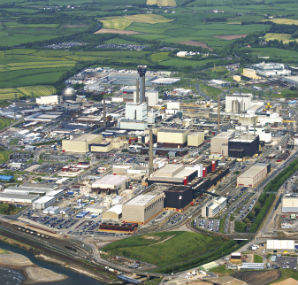The funding needed for decommissioning the Sellafield site in Cumbria has been increasing "sharply" in recent years, while the provision for the rest of the UK estate has remained stable, according to a new report from the National Audit Office.

The funding needed for decommissioning the Sellafield site in Cumbria has been increasing "sharply" in recent years, while the provision for the rest of the UK estate has remained stable, according to a new report from the National Audit Office.
The report says that the total cost of cleaning up the UK’s 17 nuclear sites now stands at around £70 billion ($107bn), and that almost three quarters of this amount – £53bn ($80bn) – relates to the Sellafield site.
In addition, the estimated provision for Sellafield has increased by nearly £6bn since March 2013. Most of the rise stems from increases in estimates of the cost of decommissioning work.
"Between 2010-11 and 2013-14 the nuclear provision for Sellafield has increased by more than £15 billion. More than £12 billion of this is from increases in estimates of the cost of work required to complete decommissioning and clean up across the site," the report said.
The report also notes that work at the site is behind schedule.
It says that Sellafield Limited has put back "considerably" most of the nine major projects on site. In particular it notes that the silos direct encapsulation plant had its expected completion date pushed back from August 2020 to June 2026, and that costs for the project have more than doubled from £1.3bn in September 2013 to £2.7bn in December 2014.
The report also says that it will cost the NDA "around £430,000" to break the contract with Nuclear Management Partners for management of the Sellafield site. The government announced in January that it was going to change the way the site was managed and effectively take it back into government control. Following an estimated 15-month transition period Sellafield Ltd will become a subsidiary of the NDA; it will be led by a team appointed and governed by a newly-constituted board of the site licence company.
The NDA said in a statement that it continues to report openly about the challenges faced in tackling the historic legacy at Europe’s most complex and hazardous nuclear site.
"The primary reason for increases in costs and schedule is because we now have a better understanding of the technical approach necessary to tackle these unique facilities that date back to the 1940s and 50s," it said.
NDA also stressed that before deciding whether to cancel the contract with Nuclear Management Partners it had to first satisfy itself and Government that it had an "alternative model that would give greater confidence of delivering progress and value for money."
